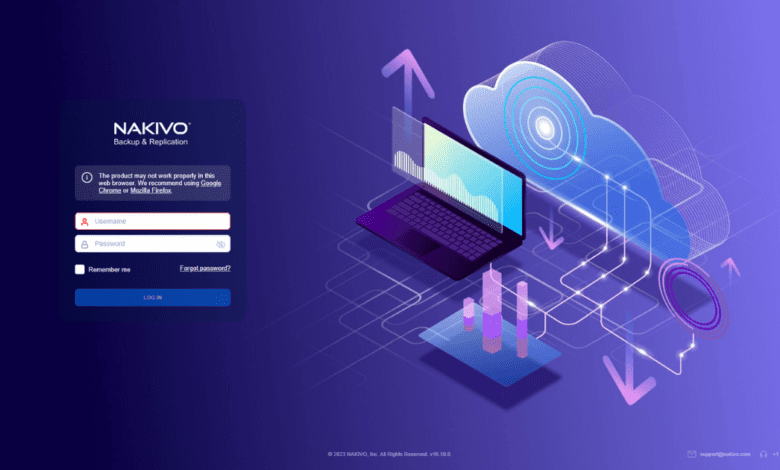 NAKIVO
has just released NAKIVO Backup and Replication v10.10 Beta with a
great new feature that many will be interested in that will help bolster
their business-critical data protection – real-time replication in
VMware vSphere environments.
NAKIVO
has just released NAKIVO Backup and Replication v10.10 Beta with a
great new feature that many will be interested in that will help bolster
their business-critical data protection – real-time replication in
VMware vSphere environments.
What is Virtual Machine Replication?
Before diving deep into the new features in NAKIVO backup replication v10.10, let’s look at the concept of virtual machine replication. So, what exactly is it?
Virtual machine replication is a technology that protects businesses at a site level/failure domain level. At its core, it involves creating an exact copy or ‘replica’ of a virtual machine (VM) on another host or location. The replication process continuously monitors the original VM for changes, ensuring the replica remains in sync with the primary machine.
Features of VM replication
Minimized data loss: Since the replica reflects the primary VM, disasters like hardware failures, software issues, or system failures don’t lead to substantial data losses. You can quickly switch to the replicated VM and resume operations.
Quick Recovery: In scenarios where the primary VM fails, the replicated VM can be booted up rapidly, ensuring fast recovery and near-zero downtimes.
Proactive testing: Replicas can act as testing environments. Testing software updates, new applications, or patches on replicas ensures that the primary VM remains untouched.
Virtual machine replication acts as an insurance policy for virtual machines and adds an extra layer of protection on top of regular backups. It safeguards against unexpected disasters and helps to ensure business continuity.
What is NAKIVO Backup and Replication?
NAKIVO Backup & Replication is a fully-featured solution that is gaining momentum. NAKIVO, a US-based corporation dedicated to data protection, offers comprehensive protection against ransomware while ensuring data recovery across varied environments such as virtual, physical, cloud, NAS, and SaaS platforms.
It uses the native vSphere data protection APIs available in licensed versions of vSphere, meaning you can’t use it to protect VMware free ESXi hosts, but this is not a limitation of NAKIVO. All commercial solutions protecting VMware vSphere environments require data protection APIs to be available.
Core Offerings of NAKIVO Backup & Replication
All-in-One Data Protection: With NAKIVO Backup & Replication, users can protect many platforms. This includes VMware vSphere, Microsoft Hyper-V, Nutanix AHV, Amazon EC2, Windows, Linux, Microsoft 365, CIFS/NFS file shares, and Oracle Database. It uses forever incremental backups.
Swift Deployment: Flexibility is one of the strengths of NAKIVO. It allows you to deploy it across multiple platforms – Linux, Windows, NAS (including Synology and QNAP). Additionally, it can be launched as a VMware vSphere VA, Nutanix AHV VA, or Amazon Machine Image (AMI). You can also use an external database for extra performance and scalability (external PostgreSQL database). It provides flexibility for backups stored in a location that aligns with the business needs.
Ransomware Protection: With ransomware attacks on the rise, NAKIVO Backup & Replication protects data by creating immutable backups in the cloud (like Amazon S3, Wasabi, Azure Blob, Backblaze B2), S3-compatible storage, and Linux-based local repositories. The emphasis on air-gapped backups ensures enhanced protection through offline storage and tape. NAKIVO also has backup malware scan functionality to ensure that recovered data is malware-free. This feature scans backup data for malware or ransomware infections. It integrates with Microsoft Windows Defender, ESET NOD32 Smart Security, and Sophos Endpoint Protection.
Backup Data Tiering: With NAKIVO, backups, and their copies can be housed onsite, offsite, in the cloud (platforms like Amazon S3, Wasabi, Azure Blob, Backblaze B2), on S3-compatible platforms, and even on tape.
Instant Recovery: NAKIVO enables instant powering on VMs straight from backups. Other capabilities provide P2V capabilities to restore physical machines as VMware VMs, granular recovery of files & application objects, and direct recovery from tape.
Disaster Recovery: Featuring the Real-Time Replication for VMwareBETA, replication from backups, and orchestrated disaster recovery automation, NAKIVO helps businesses have minimal disruptions. It also includes Site Recovery capabilities that provide non-disruptive recovery testing capabilities.
IT Monitoring: It also includes monitoring VMware vSphere VMs, hosts, and datastores. By keeping tabs on CPU, RAM, and disk usage, you have visibility to resources and any bottlenecks.
Effortless Administration: An intuitive web interface coupled with workflow automation through Job Chaining and Policy-Based Data Protection helps to take care of the heavy lifting of backup administration. Additional features like Active Directory integration, a dashboard overview, and a Calendar view further streamline processes.
Bare metal recovery feature – NAKIVO offers bare metal recovery as part of the feature set, allowing organizations to perform bare metal recovery on physical machines
Subscription-based and perpetual pricing – NAKIVO offers subscription-based and perpetual license pricing models that start at $29 per workload/year or $229 per socket. It’s nice to see they still offer perpetual pricing when many have long gone away from this model.
VMware Real-Time Replication
NAKIVO Backup & Replication v10.10 Beta’s new flagship feature is its real-time VMware vSphere replication. It provides:
A direct copy of virtual machines, retaining even the intricate application data and configurations.
Instantaneous updates on replicas in tandem with the source VM modifications.
Achieving unmatched RTOs and RPOs, with metrics like a mere one-second pause.
Benefits
Data Loss Prevention: With NAKIVO backup, be it a system failure, natural calamity, or even a cyberattack, the operational continuity remains unhampered.
Swift Data Relocation: Migrating data is no longer a slow process. NAKIVO backup replication ensures that the transition is swift and disruption-free since the data is continuously replicated
Prerequisites
The new feature supports VMware vSphere. However, certain prerequisites must be in place for the source and target hosts:
Source Hosts:
Install the I/O Filter tool within the VMware host cluster.
VMs slated for replication must have an established I/O Filter storage policy, or you might need to create one.
Under the Settings > Node area, you can download the I/O filter for Real-Time Replication.
Here, I have extracted the zipped I/O filter download.
Copy over the VIB file to your VMware ESXi hosts. Set the software acceptance level to Community Supported. Then install the VIB.
##Set community supported acceptancelevel
esxcli software acceptance set --level=CommunitySupported
##Install the I/O filter VIB
esxcli software vib install -v /tmp/NAK_bootbank_nbrfilter_10
.10.0.76457-1OEM.700.1.0.15843807.vib***Note*** More steps need to be completed, including:
The Query patch vCenter permission must be granted to NAKIVO Backup & Replication to manage the I/O Filter (Host > Configuration > Query patch).
To learn more from the official documentation on installing the I/O filter and setting the required storage policies, look here: Installing I/O Filter (nakivo.com).
Target Hosts:
Create a NAKIVO backup replication node, aka the Transporter, as a VMware vSphere Appliance.
For real-time replication, ensure the Journal Service module resides on the VMware vSphere Appliance installed.
Creating a VMware vSphere Real-Time Replication job
Creating the real-time replication job using NAKIVO backup replication v10.10 is intuitive:
Head over to the dashboard.
Follow the wizard when creating the job – Source, Destination, among others.
In Retention, set RPO at one second with a journal size maximum of 1 GB.
The VMware vSphere Appliance node should be flagged as the target transporter.
Launching the NAKIVO Backup & Replication v10.10 Beta Real-time Replication Job Wizard for VMware vSphere.
Real-time Replica Failover in Action
With NAKIVO backup replication v10.10, activating a Real-time replica failover is straightforward:
Navigate to Recover > VMware Full Recovery > Real-Time Replica Failover Beta.
Select the preferred recovery point for the replica VM.
Launch the failover process and validate the consistency between the original and replicated VMs.
Incentives with NAKIVO: $30 Amazon eGift Card
One of the cool things with the NAKIVO betas is if you try out v10.10, you can receive a $30 Amazon eGift Card. You can follow the steps for setting up the real-time replication and submit your support bundle before September 10, 2023.
Wrapping up
This is a great new feature with real-time replication for VMware. Many companies are interested in continuous data protection since data is becoming increasingly critical to all companies. The tighter you can get your RPOs, the better. Replication protects you from many types of failure and ensures you can quickly return healthy VMs.
I always have liked NAKIVO’s Beta program since it allows everyone to get their hands on a fully-featured pre-release copy of the new features, and this is great for trying these out in production and in home lab environments.


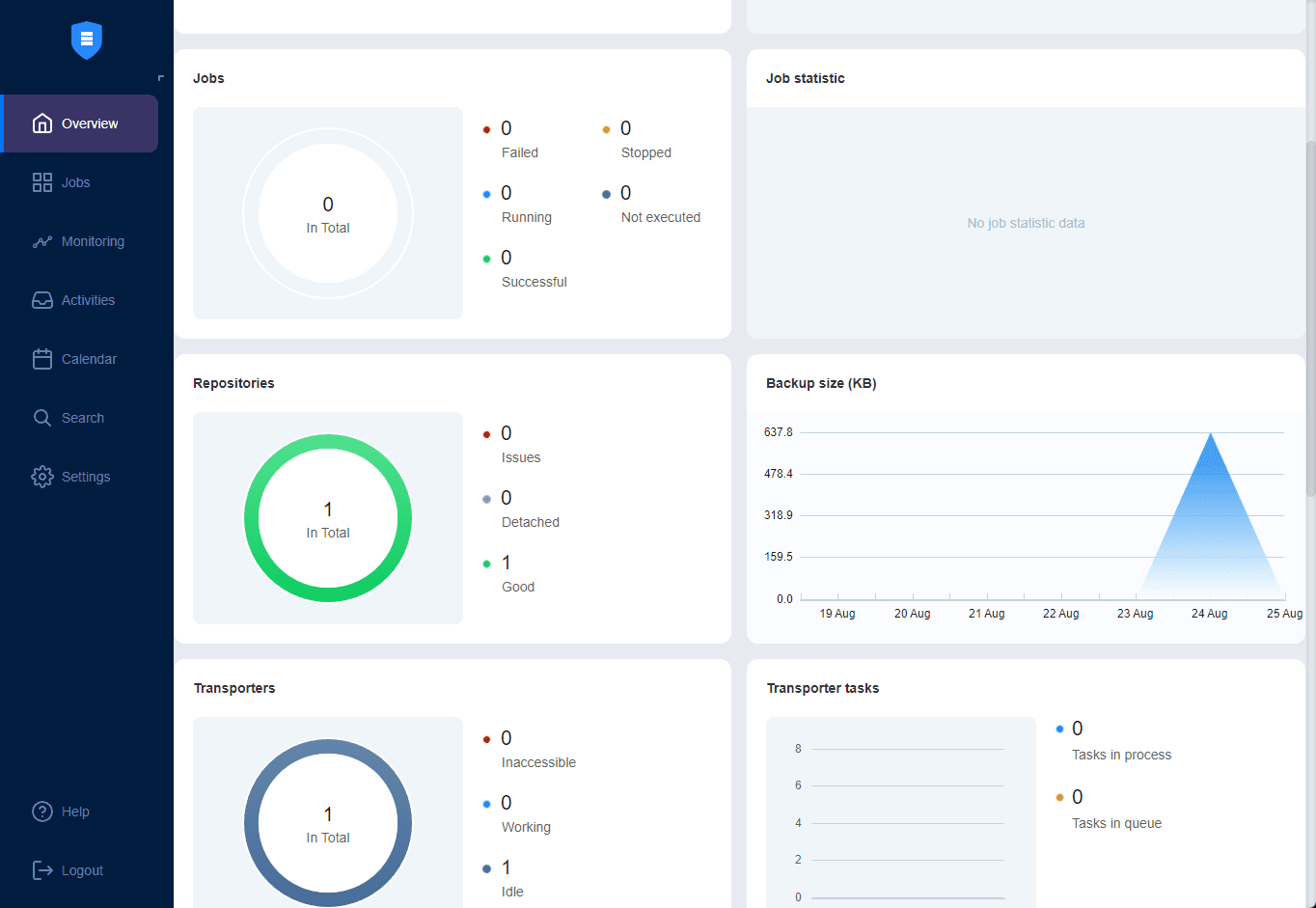
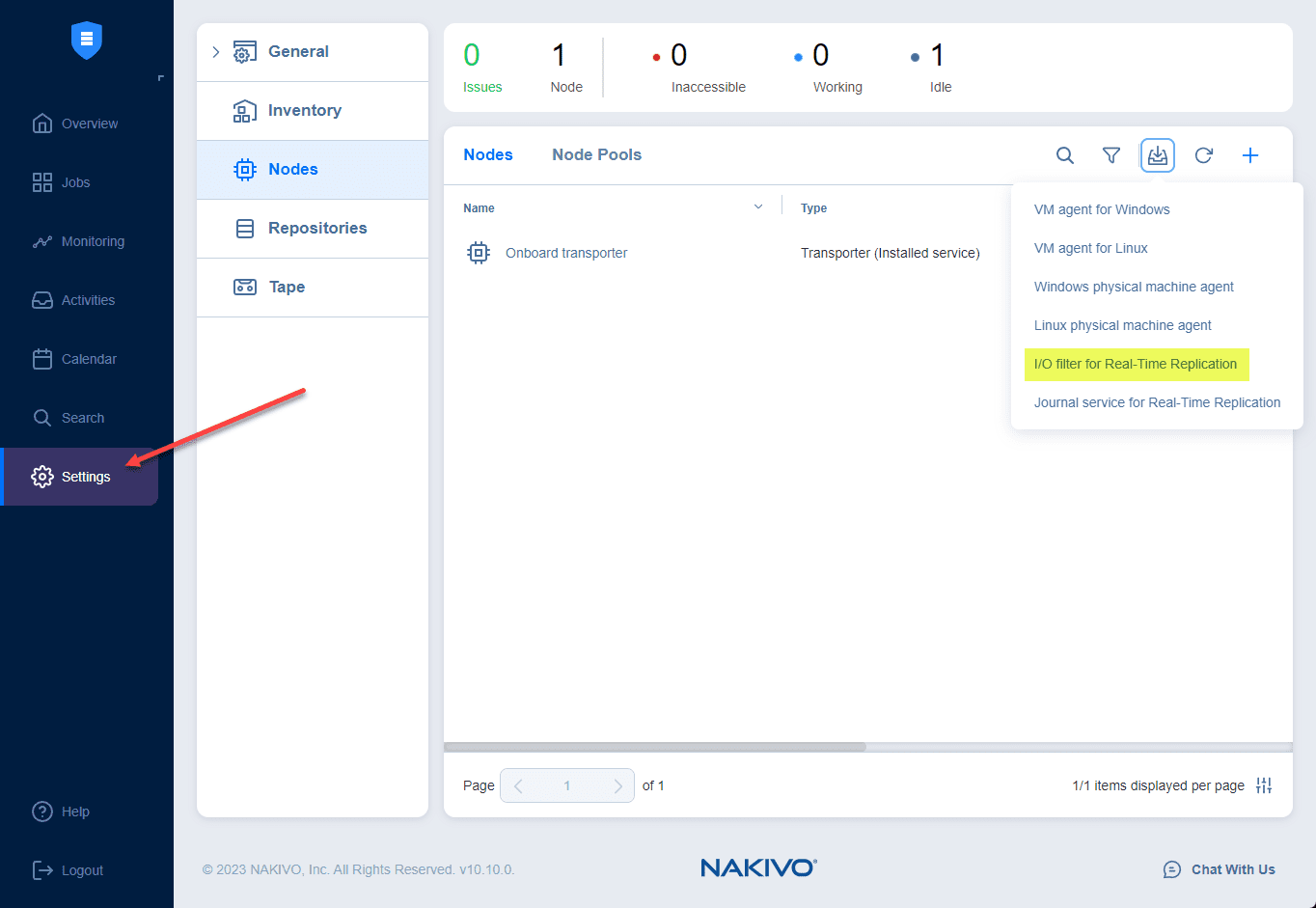
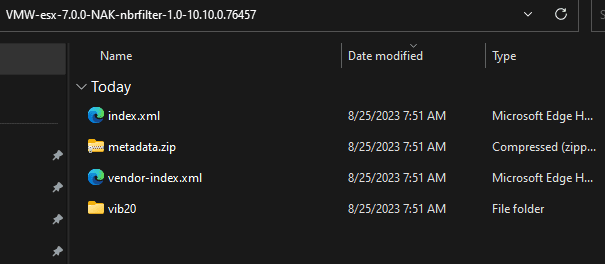
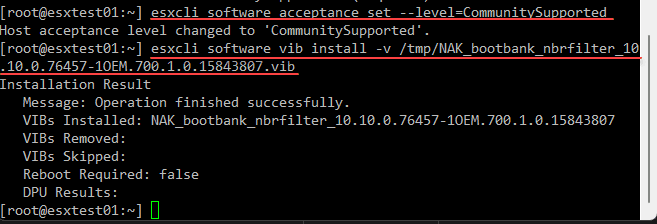
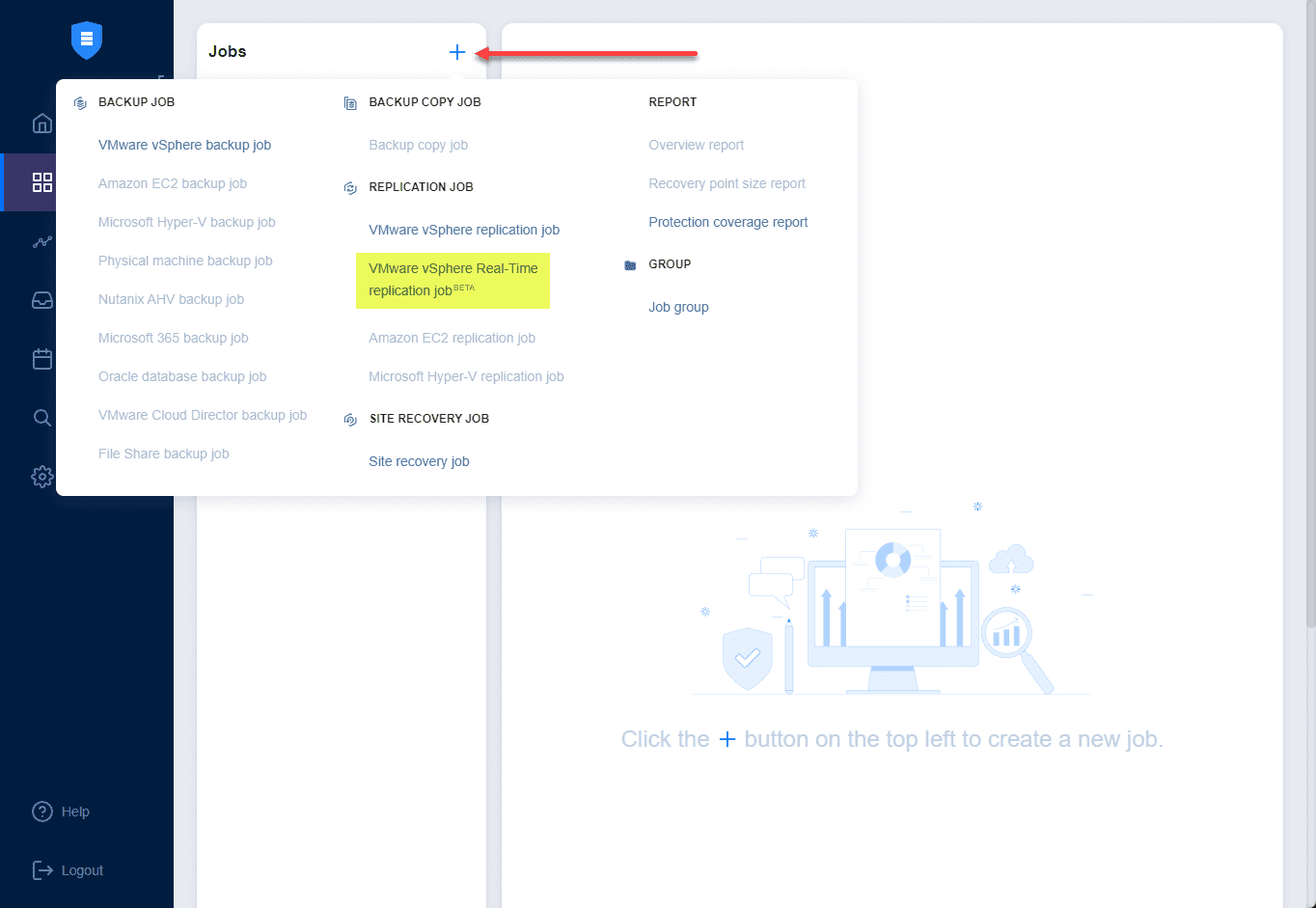
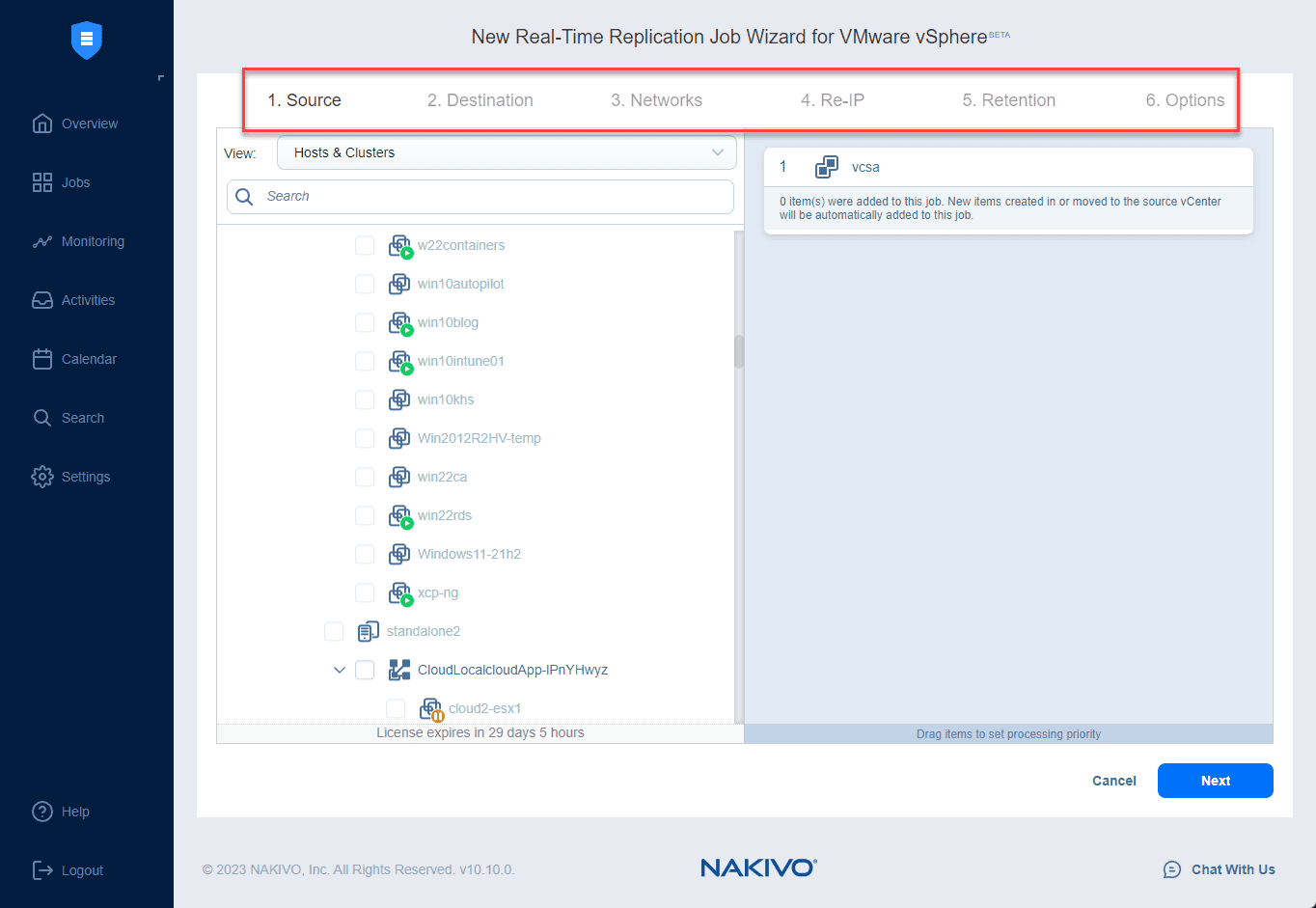
0 Comments